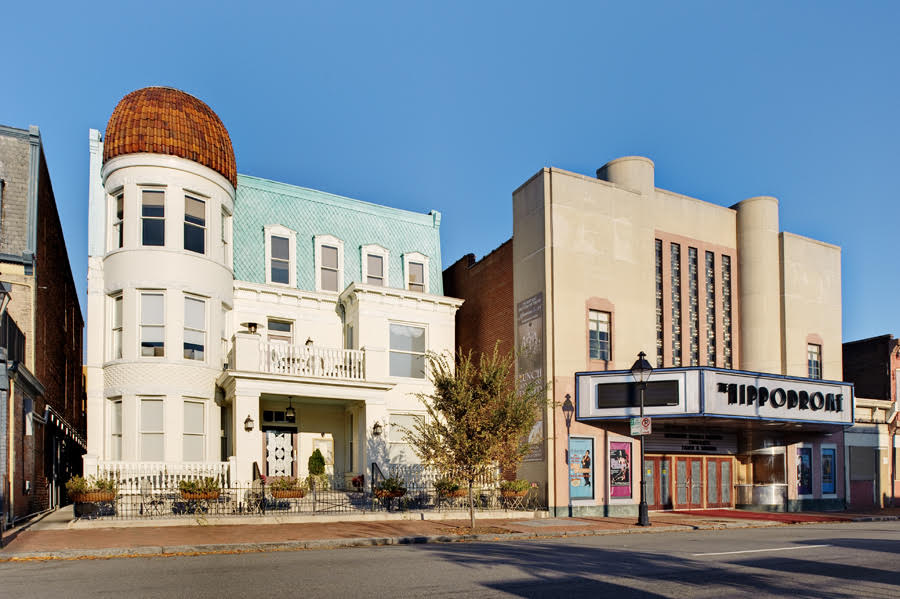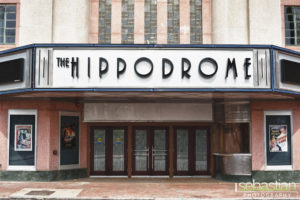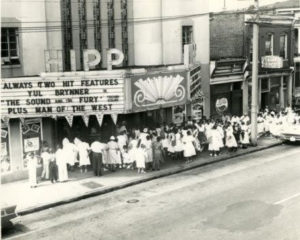Hippodrome Theater
Hippodrome Theater
When second-generation developer Ron Stallings walked by Richmond’s vacant Hippodrome Theater, he saw echoes of Beale Street, Memphis’s historic home of the blues. Stallings’s company, Walker Row Partnership, is dedicated to developing housing and neighborhood amenities in the historic Jackson Ward, once known as “the Harlem of the South.” He envisioned a revitalized historic district…
Location
Richmond, Virginia
Partners
Walker Row Partnership
Public Funding Includes
Virginia Housing Development Authority: Bond financing
Virginia Department of Historic Resources: Historic Rehabilitation Tax Credits
S. Department of the Interior National Park Service: Historic Tax Credits
City of Richmond: Grants from the city’s allocation of U.S. Department of Housing and Urban Development HOME Investment Partnerships program funds
When second-generation developer Ron Stallings walked by Richmond’s vacant Hippodrome Theater, he saw echoes of Beale Street, Memphis’s historic home of the blues. Stallings’s company, Walker Row Partnership, is dedicated to developing housing and neighborhood amenities in the historic Jackson Ward, once known as “the Harlem of the South.” He envisioned a revitalized historic district with entertainment, shopping and restaurants along 2nd Street. Anchored by the Hippodrome, he believed the area could provide a dining and entertainment destination for locals, tourists and business travelers at the Richmond Convention Center a block away. The hard part was convincing others of his vision.

Photos courtesy of Walker Row Partnership
“It’s one of the riskiest things you can put out there, an entertainment venue and food service,” Stallings said. “We were able to obtain bank financing, but it wasn’t enough.” He was unsuccessful in approaching the city for funding. Stallings had already completed about 35 historic tax credit projects. He knew federal and state historic tax credits could bring down the cost of his project, but he still needed additional funds. He happened to discuss the project with a knowledgeable friend one day. “He said, ‘Ron, what are you doing? Nobody is going to give you money to do a nightclub and restaurant. You need to make this a multiuse development and add residential.’ It was like a lightbulb came on.” Within a day, Stallings had reconfigured the project to add 28 affordable apartments. The new project aligned with the neighborhood revitalization vision Walker Row Development shares with the city and the Historic Jackson Ward Association.

Photos courtesy of Walker Row Partnership
Stallings’s ability to pivot his vision for the project helped other funding sources fall into place. With housing as part of his arts project, he was able to go back to city and obtain HOME funding. He applied for state historic tax credits from the Virginia Department of Historic Resources and federal historic tax credits from the National Park Service. Finally, he received a commitment for bond financing from the Virginia Housing Development Authority (VHDA). The VHDA’s commitment to repay construction financing helped convince the banks to commit their financing to the project.
Walker Row completed the Hippodrome renovation in 2011 and it has been operating successfully since then. It hosted more than 200 events per year before the COVID-19 pandemic struck. The history and location draw visitors for performances; people rent the space for weddings, parties, and convention meetings; and residents dine in the restaurant. Nearby businesses are also benefiting from the increase in residents and visitors.

Photos courtesy of Walker Row Partnership
Stallings would advise others not to let their dream be a tunnel vision, but to think more broadly about the potential impact of a project and figure out how to leverage other parties’ interests. “One of my favorite things to do is to say, ‘Tell me what your goal is,’ and once I have heard that, I can usually align what I want to help you.” The Hippodrome project in its final form suited the interests of multiple players – Stallings and the Jackson Ward community, the city, and the VHDA – and that helped the funding flow. Stallings summed up his philosophy: “It’s always about trying to do something good and if you do something good, other folks will usually jump in.”

